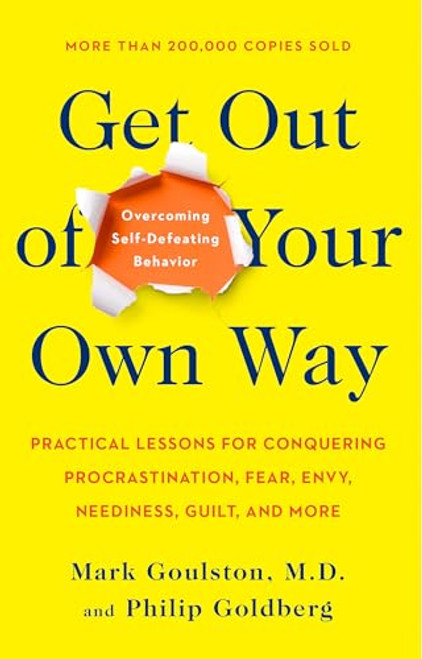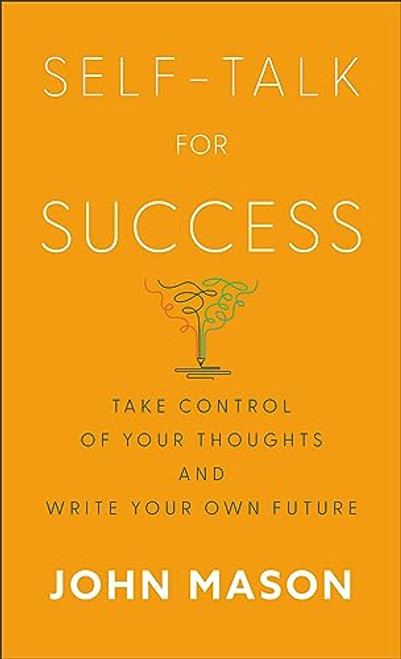The Science of Self Talk: How to Increase Your Emotional Intelligence and Stop Getting in Your Own Way (Positive Psychology Coaching Series)
MSRP:
Was:
Now:
$17.72 - $31.71
(You save
)
(No reviews yet)
Write a Review

Write a Review

The Science of Self Talk: How to Increase Your Emotional Intelligence and Stop Getting in Your Own Way (Positive Psychology Coaching Series)
- SKU:
- UPC:
- 9781728688299
- Maximum Purchase:
- 3 units
- Binding:
- Paperback
- Publication Date:
- 2018-10-12
- Author:
- Ian Tuhovsky
- Language:
- english

How to Get Out of Your Own Way
MSRP:
Was:
Now:
$38.88 - $45.48

Harper Wave
Stop Self-Sabotage: Six Steps to Unlock Your True Motivation, Harness Your Willpower, and Get Out of Your Own Way
MSRP:
Was:
Now:
$14.49 - $31.15

TarcherPerigee
Get Out of Your Own Way: Overcoming Self-Defeating Behavior
MSRP:
Was:
Now:
$12.75 - $21.43

Lee Digital Ltd. Liability Company
Emotional Intelligence: Raise Your EQ (Mastering Self Awareness & Controlling Your Emotions) (Ei Master)
MSRP:
Was:
Now:
$18.26 - $22.62

Wiley
Selling Boldly: Applying the New Science of Positive Psychology to Dramatically Increase Your Confidence, Happiness, and Sales
MSRP:
Was:
Now:
$13.46 - $37.17

Baker Pub Group/Baker Books
Self-Talk for Success: Take Control of Your Thoughts and Write Your Own Future
MSRP:
Was:
Now:
$21.14 - $25.99

Be Your Own Coach: Your Pathway to Possibility (CRISP FIFTY-MINUTE SERIES)
MSRP:
Was:
Now:
$17.00 - $300.00

How NOT to Murder Your ADHD Kid: Instead learn how to be your child's own ADHD coach
MSRP:
Was:
Now:
$31.81 - $38.19

William Morrow & Company
Taming Your Gremlin: A Surprisingly Simple Method for Getting Out of Your Own Way
MSRP:
Was:
Now:
$11.30 - $20.09
!
